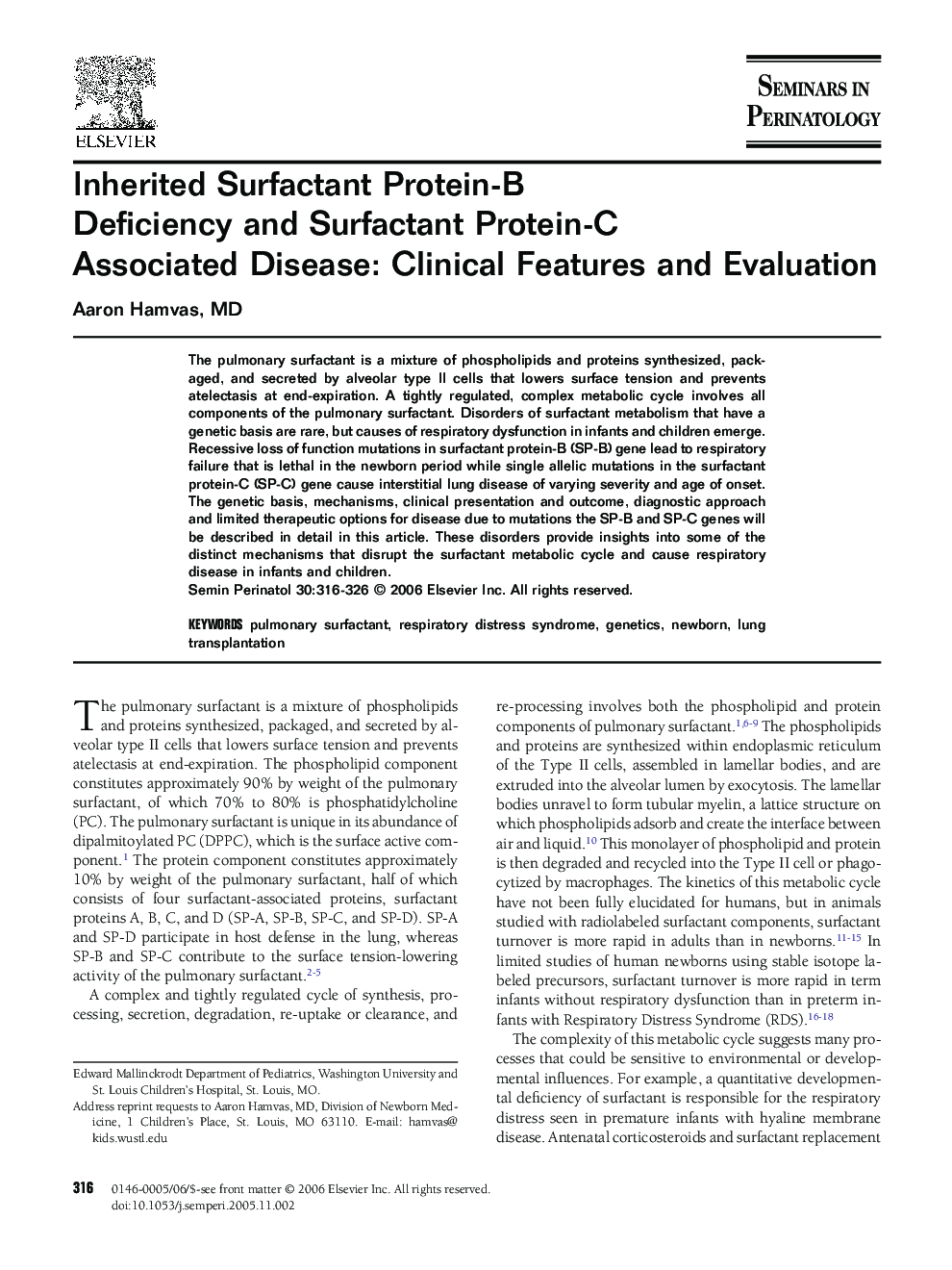| Article ID | Journal | Published Year | Pages | File Type |
|---|---|---|---|---|
| 3837133 | Seminars in Perinatology | 2006 | 11 Pages |
The pulmonary surfactant is a mixture of phospholipids and proteins synthesized, packaged, and secreted by alveolar type II cells that lowers surface tension and prevents atelectasis at end-expiration. A tightly regulated, complex metabolic cycle involves all components of the pulmonary surfactant. Disorders of surfactant metabolism that have a genetic basis are rare, but causes of respiratory dysfunction in infants and children emerge. Recessive loss of function mutations in surfactant protein-B (SP-B) gene lead to respiratory failure that is lethal in the newborn period while single allelic mutations in the surfactant protein-C (SP-C) gene cause interstitial lung disease of varying severity and age of onset. The genetic basis, mechanisms, clinical presentation and outcome, diagnostic approach and limited therapeutic options for disease due to mutations the SP-B and SP-C genes will be described in detail in this article. These disorders provide insights into some of the distinct mechanisms that disrupt the surfactant metabolic cycle and cause respiratory disease in infants and children.
